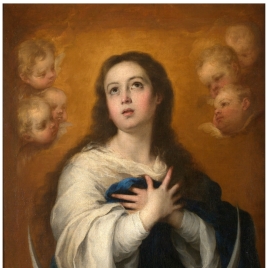Like the Gospels, the Talmud suggests that we help the weakest, as this is what God Himself would do. By helping those in need, we are indeed walking in God’s footsteps. God teaches us what practical mercy is,” explains Israeli Rabbi Oded Peles in a commentary for the Heschel Center of the Catholic University of Lublin. Referring to the Babylonian Talmud, he shows an amazing resemblance to the Gospel, emphasizing that by showing kindness to our neighbors, we imitate God’s qualities, draw closer to Him, and follow Him.
The Gospel of Matthew, read on the last Sunday of the Church’s liturgical year, presents a vision of the Last Judgement, showing God as King, Shepherd, and Judge. It points to the practical dimension of social justice and teaches the practical dimension of mercy.
The Babylonian Talmud (tractate Sotta 14a) contains a very similar message, in which Rabbi Hama, when asked whether it is possible to imitate God, who is described as a “consuming fire,” to which, after all, one cannot come close, answers that it is instead a matter of approaching God by imitating His attributes. He emphasized that God can be imitated “by visiting the sick, just as God visited Abraham; comforting the mourners, as God did with Isaac; burying the dead, just as God buried Moses.” Both the Gospel and the Talmud teach that we imitate God by helping the weakest, those on the margins of our communities and society.
God is King, Shepherd, and Judge. Regarding the vision of God reigning on the throne, Rabbi Peles emphasizes that this image is also not alien to Judaism, as it is the central theme of Rosh Hashanah – the Jewish New Year. “On that day, when according to the sages, the world was created, God Almighty is crowned. He sits on his throne and he judges all mankind.”
God, who sits on the throne, is to judge the earth. He is compared by Jesus to a shepherd, according to Oded Peles, because the shepherd knows the flock he feeds and knows that it is defenseless without him. The shepherd helps the weak and sick, seeks and finds the lost ones, dresses the wounded, and strengthens the sick (cf. Ez 34). By showing kindness and help to our neighbors, like a shepherd caring for his flock, we imitate the qualities of God, draw closer to Him, and follow Him, according to the words of Jesus: “I say to you, whatever you did for one of these least brothers of mine, you did for me” (Matthew 25:40).
The entire text of the commentary is on the website of the Heschel Center of the Catholic University of Lublin:
https://heschel.kul.pl/in-the-gospel-and-the-talmud-god-teaches-us-mercy-in-practice,art_105014.html










